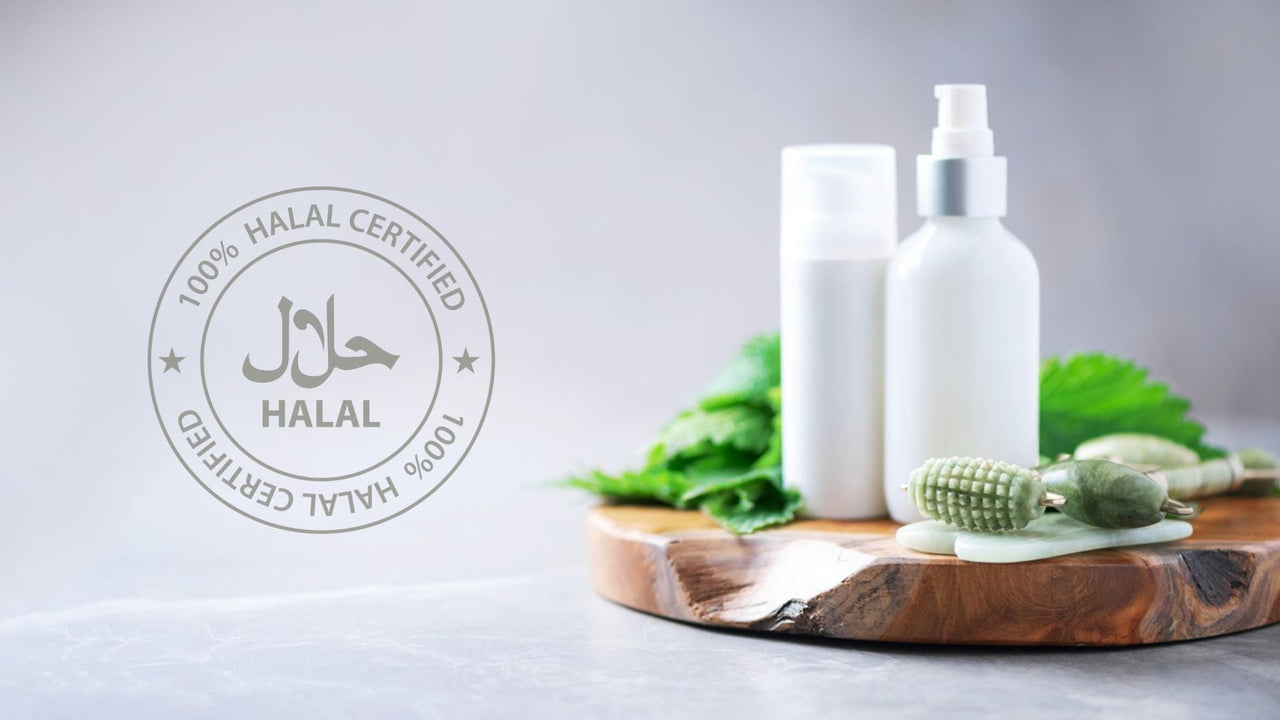Introduction
The beauty industry offers a variety of product labels—“clean,” “natural,” “vegan,” and “cruelty-free.” For Muslim consumers, one label stands out: halal certification. Much like halal food, halal skincare ensures products meet strict guidelines for ingredients, production, and ethical standards. But how does halal compare to vegan or other labels, and why does it matter?
What Is Halal Skincare Certification?
Halal skincare certification is an official process where a recognized authority confirms that a product follows Islamic requirements. This includes:
-
Ingredients – Excludes alcohol (except safe, non-intoxicating forms) and animal byproducts from non-halal sources.
-
Production – Factories and equipment must be free of cross-contamination with non-halal substances.
-
Hygiene & Safety – Products must be clean, safe, and ethically produced.
Authorities such as JAKIM (Malaysia), MUI (Indonesia), and the Halal Food Authority (UK) are among the most widely recognized globally.
Why Halal Certification Matters
-
Transparency – Ensures consumers know exactly what’s in their products.
-
Global Standard – Halal regulations cover sourcing, hygiene, and ethical practices more comprehensively than many other labels.
-
Trust & Peace of Mind – Certified products remove uncertainty about hidden or questionable ingredients.
-
Broader Appeal – Non-Muslim consumers are also drawn to halal standards because of their emphasis on safety and cleanliness.
Halal vs. Vegan: What’s the Difference?
Many people assume vegan and halal are the same, but they have important distinctions:
-
Vegan – Focuses only on excluding animal-derived ingredients. A vegan product may still contain alcohol or other substances that are not halal.
-
Halal – Goes further by regulating both ingredients and the entire manufacturing process. It ensures no cross-contamination, ethical sourcing, and compliance with wider health and cleanliness principles.
In other words, all halal products can be vegan, but not all vegan products are halal. For example, a vegan cream might use alcohol-based preservatives that are not permissible in halal standards.
Why Halal May Be the Stronger Choice
-
Comprehensive Assurance – Halal covers sourcing, processing, and hygiene, while vegan only addresses animal ingredients.
-
Ingredient Integrity – Halal certification requires clear vetting of raw materials, preventing the use of ambiguous or hidden derivatives.
-
Global Recognition – Halal certifications are government or council-backed, giving them a high level of accountability.
-
Cultural Relevance – For Muslims, halal skincare allows daily routines to align with personal and cultural values without compromise.
What to Look for on Labels
-
Certification Marks – From recognized authorities like JAKIM, MUI, or others in your country.
-
Ingredient Lists – Avoid ingredients like porcine-derived gelatin, non-halal glycerin, or animal collagen.
-
Cross-Certifications – Some products may be halal and vegan, but halal certification provides the broader guarantee.
-
Independent Testing – Brands that combine halal certification with third-party safety testing offer added reassurance.
Common Misconceptions
-
“Halal only means no alcohol.”
False—halal certification reviews all aspects of ingredients and production. -
“Vegan automatically means halal.”
Not true—a vegan product may contain non-halal alcohols or be made in facilities with cross-contamination. -
“Halal skincare is only for Muslims.”
While essential for Muslims, halal standards are valued by anyone seeking clear, ethical, and transparent skincare.
Key Takeaway
Halal skincare certification is more than a label—it’s a comprehensive framework for integrity, safety, and ingredient clarity. While vegan products serve an important role, halal standards go further, offering peace of mind about both what goes into the product and how it is made. For Muslim consumers, halal-certified skincare provides the most reliable way to stay aligned with both values and wellness.



